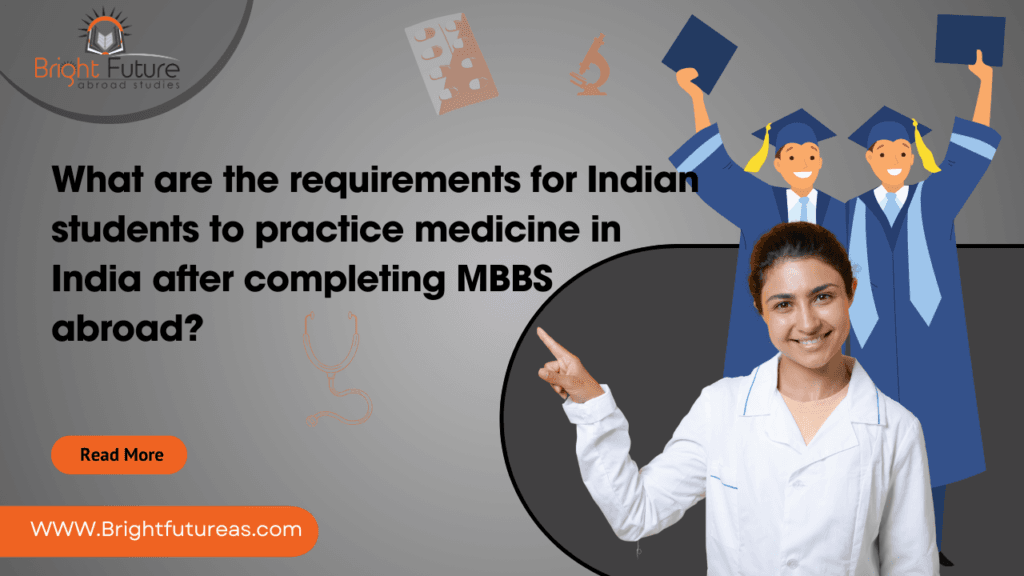Introduction
Pursuing MBBS abroad can be a dream come true for many aspiring doctors, offering unique experiences and opportunities. However, when it comes to practicing medicine in India after completing your studies abroad, there are specific requirements and hurdles to overcome. This blog post will delve into the essential steps and considerations for Indian students who wish to embark on a medical career back home.
Understanding the Foreign Medical Graduates (FMGE) Exam
The Foreign Medical Graduates Examination (FMGE), now known as the National Medical Commission (NMC) Foreign Medical Graduate Examination (FMGE), is the primary hurdle for Indian students who have completed their MBBS abroad. This screening test assesses the knowledge and clinical skills of foreign medical graduates, ensuring that they meet the standards required to practice medicine in India.
Eligibility Criteria for FMGE
To be eligible for the FMGE, you must:
- Indian Citizen or Overseas Citizen of India (OCI): You must hold an Indian passport or OCI card.
- Completed MBBS Abroad: Your medical degree must be from a recognized medical institution outside India.
- No Previous Attempts: You cannot have previously failed the FMGE more than five times.
Steps to Practice Medicine in India
- Clear the FMGE: This is the most crucial step. You must pass the FMGE with a minimum qualifying score to proceed.
- Complete a Rotatory Internship: After passing the FMGE, you are required to complete a one-year rotatory internship in India. This practical experience ensures that you are familiar with the Indian healthcare system and its practices.
- Register with the State Medical Council: Once you have completed your internship, you need to register with the State Medical Council (SMC) in the state where you wish to practice. The registration process involves submitting necessary documents and paying fees.
Additional Considerations
- Medical Council of India (MCI) Regulations: Stay updated with the latest regulations and guidelines issued by the MCI or NMC. They may introduce changes or updates that could impact your path to practicing medicine in India.
- Language Proficiency: If you are not proficient in Hindi or English, consider improving your language skills. These languages are essential for effective communication with patients and healthcare professionals in India.
- Internship Opportunities: Research and explore opportunities for internships in India. This can help you gain practical experience and network with healthcare professionals in the country.
Conclusion
Practicing medicine in India after completing MBBS abroad is a rewarding journey, but it requires careful planning and dedication. By understanding the requirements, preparing for the FMGE, and completing the necessary steps, you can achieve your goal of becoming a licensed doctor in India. Remember to stay informed about the latest regulations and seek guidance from experienced professionals to ensure a smooth transition. With perseverance and hard work, you can make a significant contribution to the healthcare system in India.

